- Our service
Our service
- What do we transport?
- Our fleet
- Coverage
- Useful information
- Customers
- Suppliers
Suppliers
- Invoice deposit
- Suppliers portal
- Tourism
Tourism
- Chepe Express
- Tequila express
- About Us


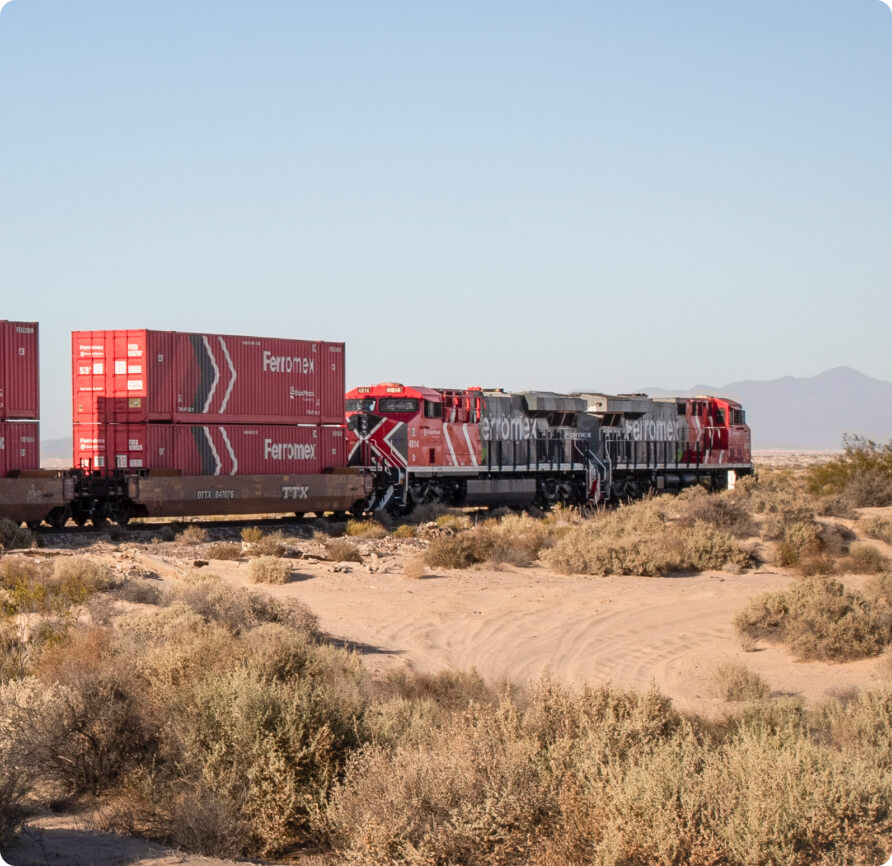
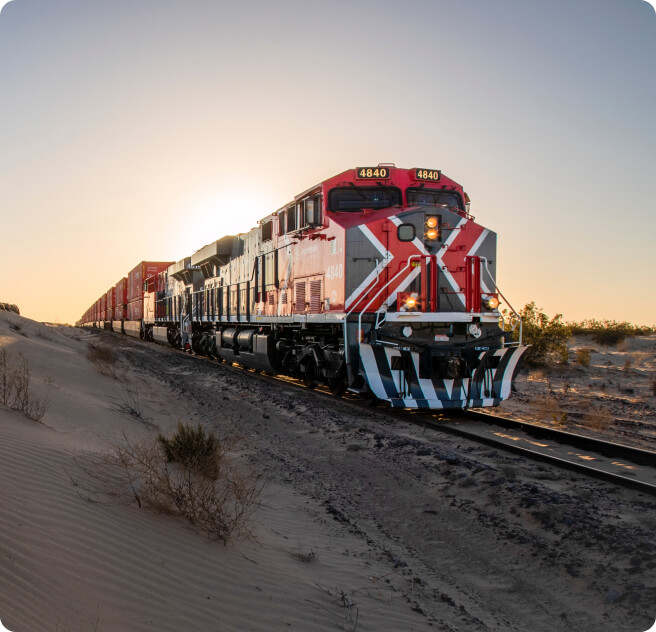
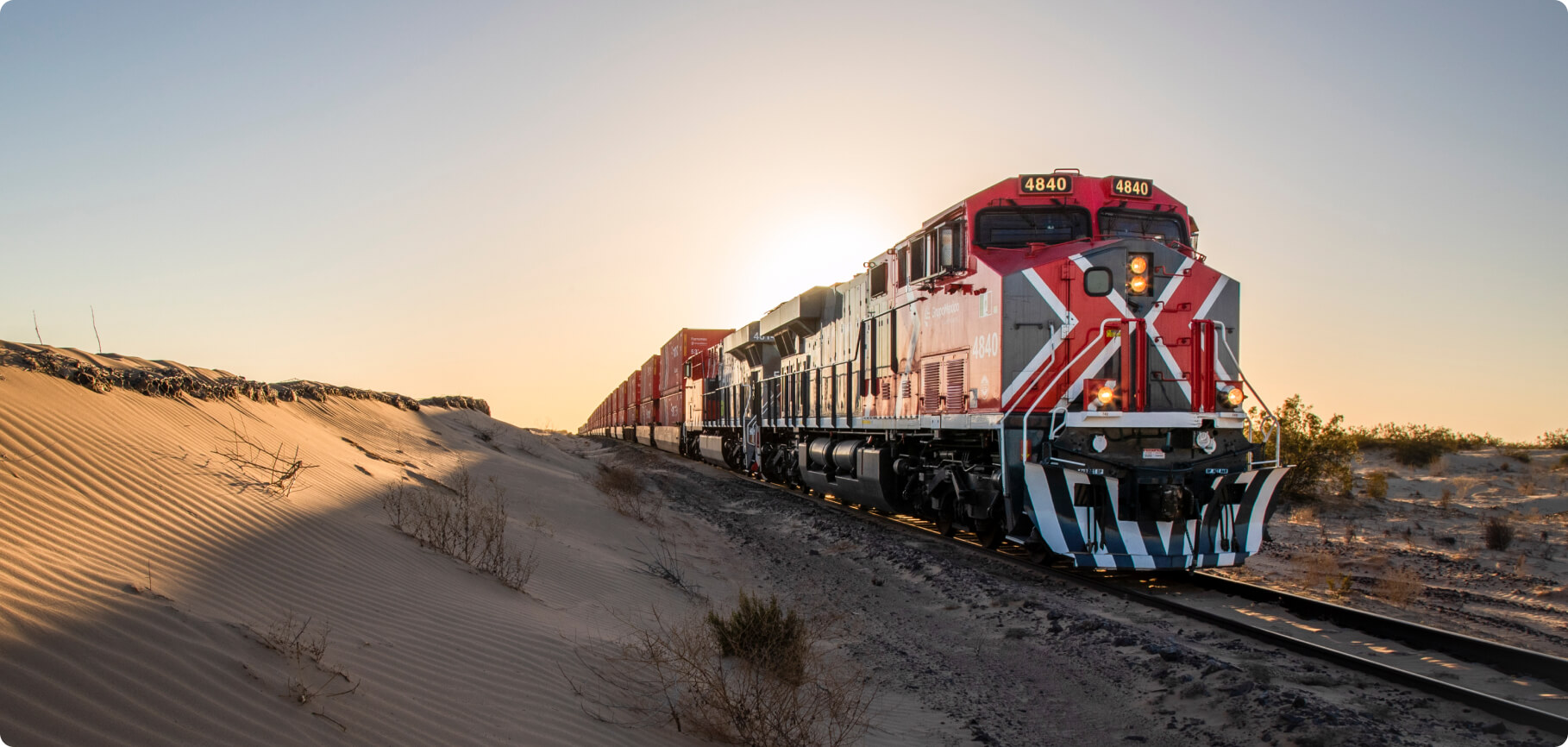
For the purposes of the Bill of Lading, the following terms shall have the meanings ascribed to them below, and shall equally apply in both singular and plural form, applicable to both Ferromex and Ferrosur:
Cargo: The products, merchandise, articles, effects, goods, containers, trailers, and/or railway equipment being transported, declared by the Shipper in the documentation.
Bill of lading: The Legal Title of the Rail Cargo Transportation Service Contract. Concessionaire: The legal entity holding a concession authorizing the provision of rail cargo transportation services, auxiliary services, various services among others, which can be contracted with Ferrocarril Mexicano, S.A. de C.V. (Ferromex) or Ferrosur, S.A. de C.V. (Ferrosur).
Consignee: The recipient of the Cargo designated by the Shipper in the Service Documentation.
Contract: This Bill of Lading entered into between Ferrocarril Mexicano, S.A. de C.V. (Ferromex) or Ferrosur, S.A. de C.V. (Ferrosur) and the Shipper, which is available to the Shipper on the website Ferromex.mx.
Documentation: The electronic service request made by the Shipper for Ferromex/Ferrosur to provide public rail cargo transportation and/or other services; once delivered to Ferromex/Ferrosur, it becomes an integral part of the Bill of Lading, binding the Shipper in all its terms and conditions.
Railway equipment or cars: The traction units intended for the provision of the Service. Cargo Specifications: The description regarding quality, type, value, conditions, state of conservation, weight, volume, marks, external signs of packaging or packing, and other characteristics declared by the Shipper in the service documentation.
Waybill: The format issued electronically by Ferromex/Ferrosur, documenting the provision of the service and containing the information provided by the Shipper through the service documentation, which forms an integral part of this Bill of Lading, binding the Shipper in all its terms and conditions.
Law: Regulatory Law of Rail Service. Rail Law: General Communication Rail Law.
Origin point: The location designated by the Shipper in the service documentation, where the provision of rail cargo services begins. Destination Point: The location designated by the Shipper in the service documentation, where the provision of rail cargo service concludes. Regulation: Rail Service Regulation.
Shipper The person from whom Ferromex/Ferrosur receives instructions and corresponding documentation for the transportation of the Cargo.
SICT: Secretariat of Infrastructure, Communications, and Transportation. Service: The public service of rail cargo transportation.
Various services: Services related to the public rail cargo transportation service, which may arise from a request by the Shipper or may be generated due to non-compliance on their part in the reception or delivery of Cargo or Railway Equipment. These various services are subject to the tariff for various services registered with the SCT.
Services tariff The amount that the Shipper must pay to Ferromex/Ferrosur for the provision of cargo transportation service.
User: The natural or legal person contracting the public rail cargo transportation service and/or various services, including but not limited to the Shipper, Consignee, owner of the cargo, customs agent, and in general, any person other than Ferromex/Ferrosur who documents, sends, loads, unloads, or receives the Cargo, or who has any responsibility regarding it, or who is responsible for complying with any obligation arising from the Bill of Lading, including payment of Service Tariffs and/or Freight Tariffs or other services. They are also solely responsible for sending units respecting the destination capacities.
Ferromex/Ferrosur, depending on the contracting party, receives for transportation, subject to the current freight rate at the date of this Bill of Lading, the containers, trailers, or railway equipment (hereinafter "the Cargo") described on the cover page of this document, in apparent good condition (except as otherwise specified), with an indication of their generic quality, weight, external marks or signs, origin, and destination. Ferromex/Ferrosur will deliver these items in the same condition (except for normal wear and tear, and normal handling during transportation) to the Consignee at the destination point, whether on their own lines or in exchange with another railway, as specified on the cover page of this document. It is mutually agreed that the transportation service is subject to applicable regulations.
The Shipper delivers the cargo to Ferromex/Ferrosur in apparent good condition (except as otherwise specified), with the stipulations indicated on the cover page of this document, to be transported in accordance with the current classification and rates. It must be delivered in these conditions to the Consignee at the specific location of the destination station, on public tracks, auxiliary tracks, consignee facilities, or at the point of exchange with another railway, as specified in this Bill of Lading. The Shipper is responsible for the accuracy of the declarations recorded in this document, including destination, weight, and contents of the transported cargo.
The Shipper has 24 hours from receipt of the traction equipment to inspect its condition and may reject it at no cost if it does not meet the essential characteristics to preserve the integrity of their cargo. After this period, the traction equipment cannot be rejected. The return of the equipment by the Shipper must be in the same condition as received, without damage or missing parts; otherwise, they are liable for the cost.
Once documented and loaded by the Shipper, any changes must be requested from Ferromex/Ferrosur's various services department, and the corresponding charge must be paid. In the case of a change in product or STCC (Standard Transportation Commodity Code), the request must be accompanied by official evidence validating the type of product.
The Shipper is responsible for applying and documenting seals on the Bill of Lading, whether their own or those provided by Ferromex/Ferrosur, upon prior request.
The Shipper may not load railway equipment exceeding its capacity or the general railway communication line capacity. The capacity of the line can be checked on the website www.ferromex.mx.
This document is nominative and therefore, the commercial transaction will be conducted with a single shipper or cargo owner, a single consignee (customs agent or unloader), a payer responsible for freight and charges generated by the execution of the service, all of whom for the purposes of this contract will be considered "users". Changes in consignee and/or destination will only be accepted upon specific request from the shipper, consignee, or beneficial owner, subject to acceptance of charges. The Shipper is responsible for notifying the loader, cargo owner, payer, customs agent, and unloader listed on the cover page of this Bill of Lading that, for the purpose of fulfilling this contract, they become users of various services that may be required within their respective competencies, and they are aware of the rules and tariffs applicable in each case. Ferromex/Ferrosur, on its part, is responsible for providing and charging for such various services in compliance with current regulations.
In any case, the shipper accepts responsibility for settling with Ferromex/Ferrosur the obligations for payment of freight and charges for various services arising from the fulfillment of the contracted service, in case the users fail to do so.
For the execution of this Bill of Lading, the shipper commits to:
a) Act at all times with integrity, responsibility, and diligence.
b) Legitimately maintain financial resources for the exercise of their activity.
c) Maintain adequate risk management systems to organize and control their activity responsibly and effectively, including crime prevention.
d) Follow proper market conduct guidelines.
e) Provide Ferromex with clear, accurate, and non-misleading information related to this Bill of Lading.
f) Manage any conflicts of interest that may arise appropriately and fairly.
g) Treat with dignity and respect anyone directly or indirectly associated with Ferromex.
h) Obtain and maintain, if applicable, environmental policies and permits required for their activity.
i) Avoid involvement in any form of corruption, extortion, or bribery, implementing internal policies to prevent actions that could be considered illicit, and carrying out schemes to prevent and identify operations involving illicit proceeds.
j) Ensure that subcontracted companies operate under the standards promoted in this Bill of Lading, respecting human rights and within the corresponding legal framework.
k) Report to the appropriate authorities any illicit conduct of which they become aware in relation to the provision of railway services and this Bill of Lading.
l) Handle Ferromex's information under strict confidentiality and in accordance with applicable regulations.
a) Quotation - When the Shipper so requires, they may request a quotation from Ferromex/Ferrosur, specifying, among other aspects, the product, origin, destination, and volume to be transported.
b) Shipment Documentation - Shippers must document shipments through the website: www.ferromex.mx and/or via EDI.
c) The Shipper of a railway service acknowledges and agrees -
c.1. That once the merchandise is shipped, they have accepted the terms and conditions of this Bill of Lading, the transportation criteria, the freight rates, and various service charges established by Ferromex/Ferrosur, as well as the documentation originating this Bill of Lading, which they fully understand and accept, and together constitute the transportation contract (Bill of Lading). These terms are available for consultation on the website: www.ferromex.mx or can be requested for consultation.
c.2. That they have the necessary capacity and legal representation to contract the service.
c.3. That they are obligated to pay for the railway service provided and all charges generated by it. In the case where there is a payer responsible for freight and various service charges, they are jointly liable for payment. In any case, the Shipper agrees to indemnify and hold Ferromex/Ferrosur harmless for any non-compliance with the obligations of the nominated or registered service users named by them for the service's fulfillment. The Shipper declares that the funds used for the aforementioned payment have been obtained lawfully in accordance with their corporate purpose.
d) Acceptance Standards - Ferromex/Ferrosur will only be responsible for the cargo under the terms of the Railway Service Regulatory Law and its Regulations when it has been delivered to a location designated by Ferromex/Ferrosur for receipt.
e) Cargo Delivery - Once the cargo is placed at the industry, Ferromex/Ferrosur's responsibilities cease according to Article 590 of the Commercial Code, or within 24 hours following the placement of the railcar at the specific destination indicated in the Bill of Lading without any claims. Ferromex/Ferrosur undertakes to transport the cargo with due diligence; however, in case of disruptions in the continuity of public railway transport service, it may opt to move the cargo via a different route than initially stipulated by the Shipper or utilize any other means available to fulfill its transportation commitment. Therefore, Ferromex/Ferrosur assumes no commitment regarding delivery time, route, or method of movement.
f) Falsity of Declaration - In any case (including, but not limited to, common cargo or dangerous and/or contaminating products), any false statements made by Shippers on Bills of Lading shall be at their own detriment. They shall be liable for damages and losses suffered by the cargo, as well as for damages caused to their own property, third-party property, the ecological environment, and Ferromex/Ferrosur's property. Ferromex/Ferrosur reserves the right to seek compensation for damages and losses incurred.
a) Packaging and Packing - Packaging and packing must comply with applicable legislation, including Mexican official standards, as well as with any requirements set forth by Ferromex/Ferrosur.
b) Cargo Inspection - Ferromex/Ferrosur reserves the right to verify the declaration made by Shippers regarding the cargo by inspecting it when deemed necessary, in accordance with section V of article 591 of the current Commercial Code. Ferromex/Ferrosur will charge the Shipper or consignees the freight corresponding to the cargo actually transported. In case of refusal by the Shipper or consignee to allow such inspections, Ferromex/Ferrosur will be released from any liability and may refuse to provide the transportation service. This also applies in cases where Ferromex/Ferrosur finds that the cargo does not correspond to the declared characteristics or poses a risk to operations.
The above is independent of the authorities' powers to inspect goods or objects being transported at any time during transportation. The Shipper also has the possibility to inspect their cargo upon prior request to Ferromex/Ferrosur, in which case the Shipper will be responsible for the respective costs according to the current Ferromex/Ferrosur various services tariff.
a) Charges for the provision of various services. - Ferromex/Ferrosur reserves the right to claim the amounts that are generated at any time, whether for delay charges, floor rights, storage and any other miscellaneous service, applying the current rates, which the user agrees to know, committing to settle the amounts resulting from said concepts, in accordance with current regulations.
Likewise, Ferromex/Ferrosur will receive claims submitted to it for overcharges subject to legal provisions and provided that the claims are accompanied by the original invoices issued by Ferromex/Ferrosur, without this implying acceptance of said claims. nor the interruption, suspension or extension of the limitation period for the exercise of the corresponding action or actions.
The cars must be loaded by the user, sender or charger at the stations of origin, whether on public roads, auxiliary roads or private escapes, within the term established by the relative provisions, and if not done so, a delay will be charged. or right of floor.
The cargo must be unloaded by the consignee at the destination stations, whether on public roads, auxiliary roads or spurs, within the term established by the rate for various services duly registered with the Ministry of Infrastructure, Communications and Transportation. In the event that loading or unloading is not carried out within the deadlines provided for in the aforementioned rate, a delay or floor fee will be charged in accordance with the same or, Ferromex/Ferrosur may unload the effects and store them at the expense of the consignee.
The concepts that are for various services in which Ferromex/Ferrosur acts as an intermediary (changes of destination, etc.), must be settled upon presentation of the corresponding invoice.
b) Cargo Auction.- Charges caused by delay or storage of unclaimed cargo will be borne by the sender or shipper and/or consignee and/or payer, once 90 (ninety) calendar days have elapsed from its arrival at the point. of destination, Ferromex/Ferrosur may, but will not be obliged, to place the unclaimed cargo at the disposal of the judicial authority of the place so that it can sell, of course, enough to cover the responsibilities that weigh on them due to its transportation, delay or storage and any other service caused, and with the rest the provisions imposed for those cases by law are complied with, a record will be drawn up of the above in which the judicial authorization and other events that are considered necessary will be recorded. In the event that after the sale of the goods has been carried out, the owner of the cargo or his representative appears, it will be in accordance with the provisions of article 603 and 604 of the commercial code.
c) Auction of Easily Decomposable Articles.- Upon arrival at the destination point and after 5 (five) calendar days have elapsed, if the effects likely to be lost or damaged in the short term are not claimed, Ferromex/Ferrosur may, but will not be obliged to sell them, with prior authorization from the judicial authority, a record of said sale will be drawn up in which the judicial authorization will be recorded and the other events, the sale of the product obtained through the auction operation will preferably cover the charges in favor of Ferromex/Ferrosur for freight, storage or any other service caused, and the rest, if any, will be at the disposal of the owner of the cargo, Ferromex/Ferrosur will be released from all responsibility, demonstrating the authorization of the authority. mentioned, to the sender or consignee or to the person representing him. In both cases, when the proceeds from the sale of the transported items are not sufficient to cover the sales expenses and charges due to Ferromex/Ferrosur, the sender, shipper or owner of the merchandise will continue to be responsible for paying the difference.
Ferromex/Ferrosur will not incur any liability for not selling or delaying the sale of the cargo in the cases indicated in sections B) and C), and the shipper, shipper and consignee will continue to be responsible for all charges for storage, delay, floor right and others that may have been generated.
d) Unloading of Goods. - Upon completion of the unloading of the product or merchandise, the consignee must remove all packaging or fastening material from the unit, as well as any remnant or product residue (cleaning) and must verify, prior to releasing the empty cart, that all doors, hatch covers and unloading gate mechanisms of the unit are properly closed. If Ferromex/Ferrosur does not do so, it may pass on the costs resulting from the omission of the above, including the rejection of an entire train for containing remnants even in a single car. The consignee (destination user) has the obligation to release the empty cart on the page www.ferromex.mx, once finished
7.1. General. Ferromex/Ferrosur will be liable for damages caused to the cargo in accordance with the provisions established by the Regulatory Law of the Railway Service and its Regulations.
Ferromex/Ferrosur's liability ceases in accordance with the provisions of the Regulatory Law of the Railway Service and its Regulations, as well as those stated in the Commercial Code. Ferromex/Ferrosur is exempt from liability for losses, shortages, shrinkages, and damages due to Fortuitous Events or force majeure such as lightning, hurricanes, earthquakes, collapses, violence, war, strikes, demonstrations, acts of authorities, etc.
For both the shipper or consignee and Ferromex/Ferrosur, the official percentage table of authorized shrinkages issued by the Ministry of Infrastructure, Communications, and Transportation is mandatory for adjusting claims for missing cargo subject to shrinkage.
Ferromex/Ferrosur is relieved of all responsibility: When the Shipper requests that their cargo be transported in uncovered cars, even if by nature they should be transported in closed units; Ferromex/Ferrosur is also relieved of liability in the following cases, which are described illustratively but not limited to: when goods are shipped without packaging or with defective or inadequate packaging for their nature; when goods are naturally exposed to risks of total or partial loss or damage due to transportation, heat, or other natural causes, such as breakage, oxidation, internal deterioration, and shrinkage; when shipments include explosives, flammable or corrosive substances, and other hazardous materials; when goods are transported under the care of a person appointed for this purpose by the Shipper or Consignee; when the seals protecting the car upon placement at the unloading location do not match the condition in which they were applied at the point of origin; and when, by order of any authority, the unit must be opened before reaching its destination, Ferromex/Ferrosur's liability is also extinguished when the consignee receives the merchandise without prior claim (in accordance with section e) of numeral 4 of this Waybill), so any claim made thereafter will be inadmissible.
7.2. Cargo Involved in Accidents. The consignee is obliged to receive from the damaged cargo the goods that are in good condition, leaving only those whose damage is justifiably subject to claim in the possession of Ferromex/Ferrosur. The consignee's removal of damaged goods without prior agreement with Ferromex/Ferrosur eliminates any liability that Ferromex/Ferrosur may have for such damage. When the Shipper declares the value of the goods and pays the corresponding premium, Ferromex/Ferrosur's liability in case of loss or damage will be determined based on the declared value of the merchandise.
7.3. Traffic with Railway Interchange.
a) For traffic exchanged with destination in the United States of America or Canada by Ferromex/Ferrosur, through one or more waybills where the Waybill includes both local traffic in Mexico and International traffic in the United States of America and/or Canada, Ferromex/Ferrosur will be responsible for damage or loss of goods only if such damage or loss occurs in Mexico and under the possession of Ferromex/Ferrosur, and the damage or loss is duly proven, without any circumstance or event that, according to Mexican legislation or this Waybill, would constitute grounds for Ferromex/Ferrosur's exemption or exclusion of liability.
b) For traffic exchanged with origin in the United States of America or Canada with destination in Mexico, through one or more Waybills ("bill of lading") or any other document certifying the traffic ("waybill") where both local traffic in the United States of America or Canada and international traffic in Mexico are included, Ferromex/Ferrosur will be responsible for damage or loss of goods only if such damage or loss occurs in Mexico and under the possession of Ferromex/Ferrosur, and the damage or loss is duly proven, without any circumstance or event that, according to Mexican legislation, would constitute grounds for exemption or exclusion of liability by Ferromex/Ferrosur.
c) For traffic exchanged with other national railways, through one or more Waybills or any other document certifying the traffic, Ferromex/Ferrosur will be responsible for damage or loss of goods only if such damage or loss occurs under the possession of Ferromex/Ferrosur, and the damage or loss is duly proven, without any circumstance or event that, according to Mexican legislation, would constitute grounds for exemption or exclusion of liability by Ferromex/Ferrosur.
In cases a), b), and c), American, Canadian, or other national railways that are not Ferromex/Ferrosur will be responsible for loss or damage to the merchandise if such loss or damage occurs within their territories or lines.
In cases a), b), and c), Ferromex/Ferrosur shall not be liable for damage or loss of goods that occur when such goods
Unless a commercial credit has been agreed upon with the customer, all shipments must be paid at the point of origin, except for charges for various services, which must be settled once incurred.
Failure to make timely payments for services rendered will result in late interest charges at a rate that is twice (2 times) the interbank equilibrium interest rate for a 28-day period published by the Bank of Mexico on the day the default begins. In addition, Ferromex/Ferrosur may exercise the actions provided for in Article 24 of the Regulatory Law of the Railway Service and Article 591 of the Commercial Code.
a) Reception. Ferromex/Ferrosur will receive units (tanks) containing goods with hazardous materials and waste only when the tanks comply with the provisions contained in the Laws, Regulations, Official Mexican Standards, administrative provisions, and other related and applicable regulations, as well as the emergency sheet and tank checklist.
b) Identification. This should conform to the standards containing lists of these most commonly transported hazardous substances and wastes, according to their class, risk division, secondary risk, the number assigned by the United Nations, as well as the special provisions that must be adhered to for their transport and the method of packaging and packing.
Regardless of the rights and obligations stipulated in this Bill of Lading, the Parties may agree on special conditions, which will prevail in case of contradiction with the provisions of this document.
This document is not negotiable, therefore the rights and obligations arising from it may not be assigned to any person without the consent of Ferromex/Ferrosur.
All matters related to the provision of railway transportation services covered by this Bill of Lading, including the rights, obligations, and responsibilities of Ferromex/Ferrosur, as well as of Ferromex/Ferrosur and the shippers, consignees, and other users of the service, shall be subject to the current Federal Mexican Legislation at the time the transportation commences, to the exclusion of any other foreign law or right. In any case, Ferromex/Ferrosur's liability for any damage or loss of the transported cargo, regardless of where the incident occurs, shall be governed solely by the aforementioned Federal Mexican Legislation.
Any judicial disputes arising from or in connection with the provision of railway transportation services by Ferromex/Ferrosur, whether as origin, intermediary, or destination, shall be resolved under the current Federal Mexican Legislation at the time the transportation commences, and by the competent Federal Courts of Mexico City, to whose jurisdiction the parties submit and waive any other jurisdiction that may correspond to them, whether by virtue of the point of origin or destination (within national territory or abroad), their current or future domiciles, or any other cause.
The user acknowledges that they are aware of the current tariffs, Mexican legislation, and regulations applicable to railway transportation, including but not limited to the Railway Service Regulatory Law, the General Communication Railways Law, the current Railway Service Regulation in the United Mexican States, and the Commercial Code, as well as all stipulations contained in this document.
By entering into this transportation contract, it is expressly stipulated that invoices arising from the service and any corrections thereof shall be accepted by both contracting parties and recognized as purely commercial documents, making it unnecessary for such documents to carry an enforcement clause. Additionally, and in accordance with all stipulations mentioned above, these documents do not require the debtor's signature and acknowledgment.
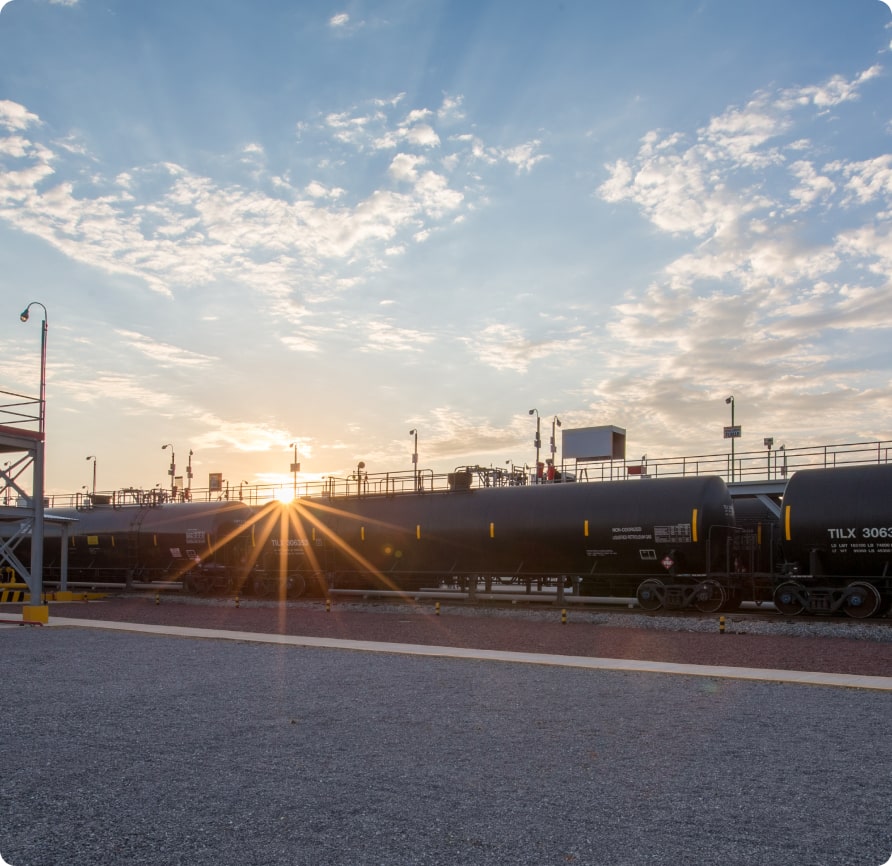
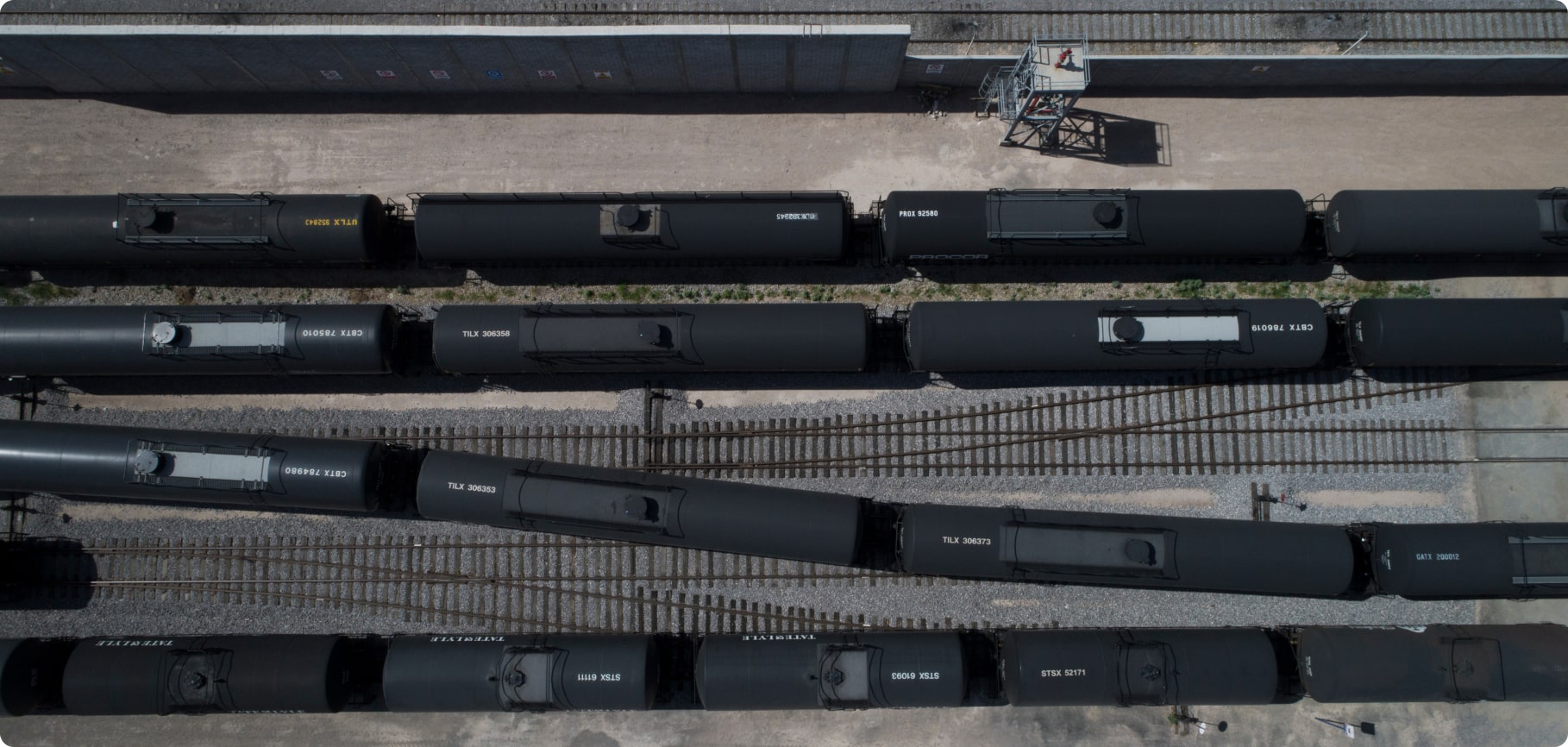
March 21st
January 12th
November 17th
December 7th
November 11th